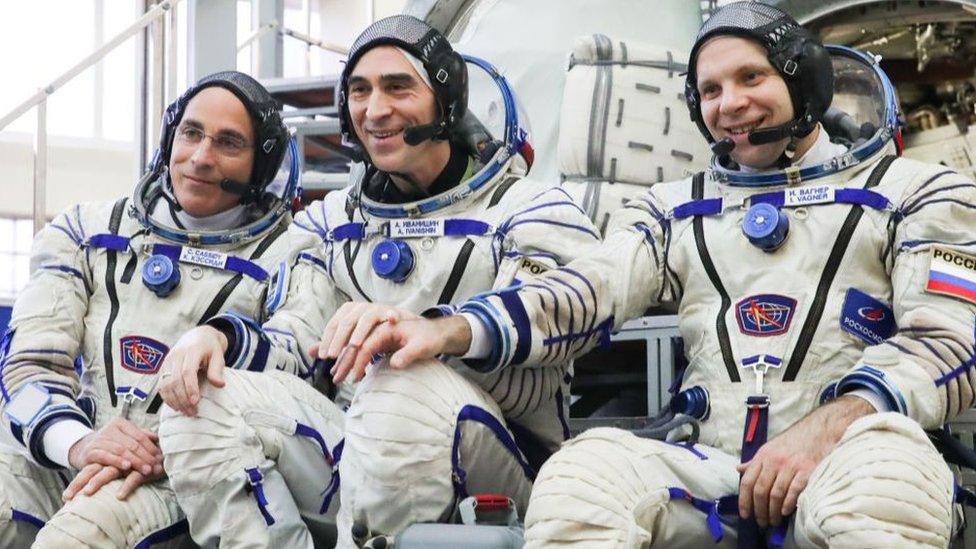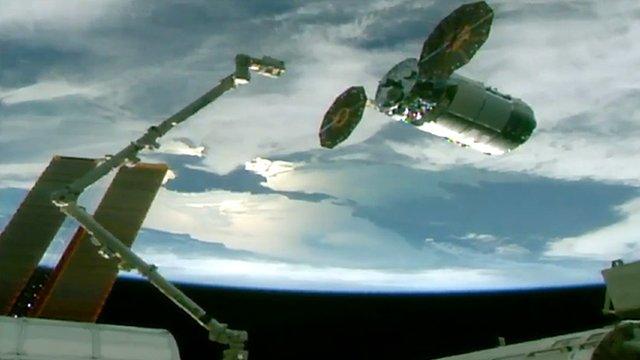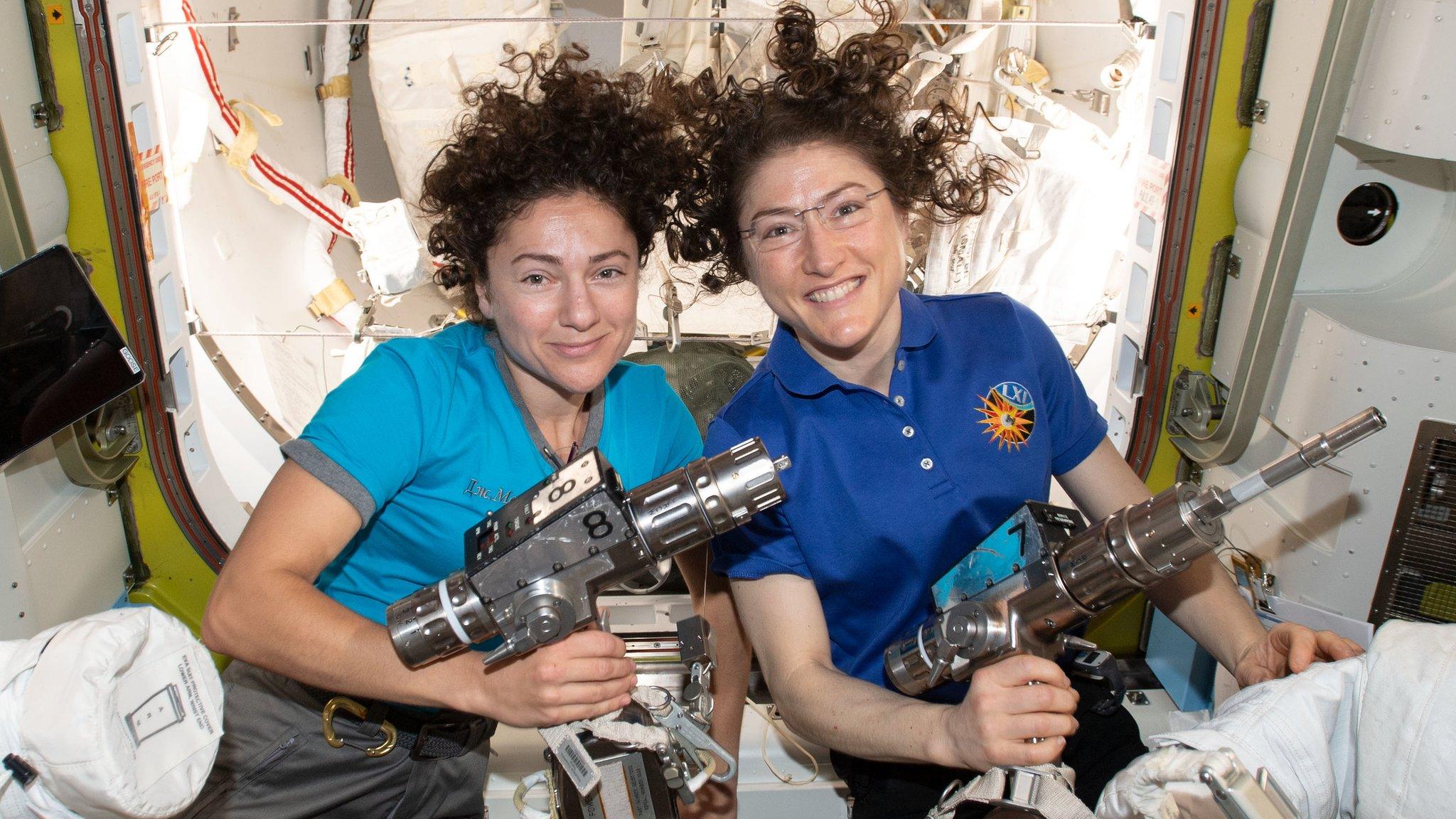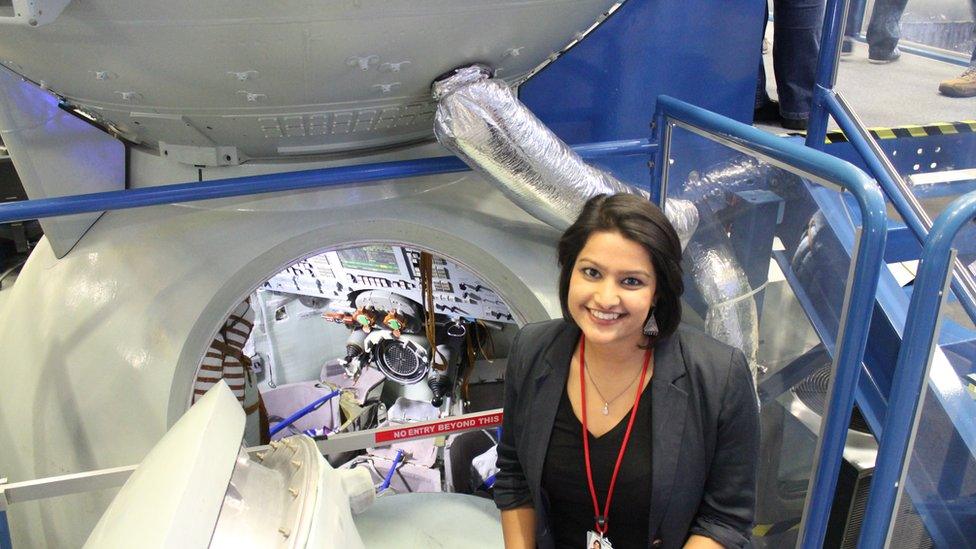ISS crew blast off after long quarantine
- Published

Nasa astronaut Christopher Cassidy (l), and cosmonauts Anatoly Ivanishin (c) and Ivan Vagner
Three new crew members have arrived at the International Space Station (ISS) after a launch carried out under tight restrictions due to the coronavirus.
The Russian Soyuz rocket carrying cosmonauts Anatoly Ivanishin and Ivan Vagner and Nasa astronaut Chris Cassidy took off from Kazakhstan on Thursday.
Pre-launch protocols were changed to prevent the virus being taken to the ISS.
Only essential personnel were allowed at the launch site for the blast-off.
Support workers wore masks and kept their distance as the crew walked to the bus to take them to the spacecraft.
Earlier, Chris Cassidy said not having their families in Baikonur to cheer them on for the launch had affected the crew, but he added: "We understand that the whole world is also impacted by the same crisis.
Following the launch Nasa Administrator Jim Bridenstine tweeted his congratulations.
Allow X content?
This article contains content provided by X. We ask for your permission before anything is loaded, as they may be using cookies and other technologies. You may want to read X’s cookie policy, external and privacy policy, external before accepting. To view this content choose ‘accept and continue’.

The three will replace Oleg Skripochka, Andrew Morgan and Jessica Meir who are due to make their return journey from the ISS on 17 April.
ISS crew routinely go into quarantine ahead of launch day, but because of the coronavirus pandemic the process began even earlier last month.
Traditional pre-launch fanfare and visits to Moscow were abandoned as the three - along with their reserve crew - stayed in isolation at Russia's Star City training centre outside the capital.
A final press conference at Baikonur was made - as usual - from behind a glass wall as an added barrier to infection.
You might also like:
With millions of people around the world forced to stay indoors by the coronavirus, cosmonauts and astronauts have been offering advice on how to survive self-isolation.
Nasa's Scott Kelly wrote in the New York Times last month that the thing he missed most during nearly a year in space from 2015 to 2016 was nature - "the colour green, the smell of fresh dirt, and the feel of warm sun on my face".
He recommended walks in the fresh air for those who were able - but said time in front of a screen should not be ruled out.
He said he and his crew mates had enjoyed regular "movie nights" on the ISS.
The ISS has been orbiting the Earth since 1998. Five partners are involved - the US, Russia, Japan, Canada and the European Space Agency.
- Published18 February 2020

- Published18 October 2019

- Published22 October 2019
